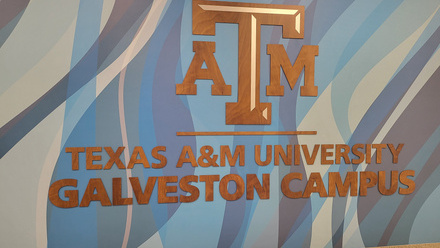T-levels: the answer to marine engineering shortages?
Introduced in 2020, awareness of the qualifications is still an issue while initial results look positive.
Experts believe that by 2030, the UK will face a shortfall of one million engineers. To address the disconnect between education and engineering and to give employers access to students aged 16-18 with high-quality technical qualifications that meet the skills needs of industry something had to change, particularly as the UK has become an international outlier in higher technical education.
Only 7% of adults hold a Level 4 or 5 qualification (a higher-level technical qualification), much lower than Germany (20%), France (21%), or the USA (27%).
T-Levels were introduced in 2020 by the UK Conservative government to enhance the link between education and industry, effectively providing a pipeline of high calibre talent with the T-Level qualifications being rigorously tested and developed in partnership with employers in individual sectors including marine engineering.
Results make for good reading
T-Levels are seen as a qualified success with the first 1,000 students recently completing their courses, of which 40 percent have gone on to find full time jobs, a further 13 percent went into further apprenticeships and 44 percent continued into full time education at university.
That initial 1,000 T-Level students in 2020 has, within four years, swelled to around 30,000 as the take up process for the qualifications gathers pace. In the Engineering and Manufacturing T-Level sectors there is an 80 percent uptick between the 1,567 students that registered in 2022 and the 2,824 that did the following year.
However, awareness of T-Levels among business organisations is low with 65 percent of businesses canvassed having no awareness of T-Levels or what they currently offer. Sixty-five percent would, however, offer an industry placement if it was relevant to their industry. Knowledge of T-Levels is also low among parents and pupils with 47% of parents and only 50% of students aware of what T-Levels were available according to a government report.
An example of how T-Levels have impacted practically is at Quantamatic, a Leicestershire manufacturing business that designs and builds small precision parts for the maritime, aerospace and automotive sectors. Like many similar businesses they struggled to recruit the right technical talent.
Francis Wilkinson, Quantamatic’s Quality and Regulatory Manager, says: “It was our local college that told us about T-Levels and asked if we’d consider taking a student for a work placement. When we saw Amber’s CV, we were keen to meet her.”
Amber was halfway through her first year studying for a Design and Development for Engineering and Manufacturing T-Level qualification when she was offered a 45-day work placement at Quantamatic.
“To say it’s been a success, is an understatement,” enthuses Wilkinson. “She completely exceeded our expectations; she brought a new dimension to the business.”
Amber’s computer-aided design skills stood out enabling her to create new drawings for Quantamatic. “Some of our product designs were a little dated,” says Wilkinson. “Amber applied the skills she’d learned at college and elevated our core drawings to a new level. She made a huge, tangible difference and leaves a real legacy.”
Image: Amber working at Quantamatic alongside Francis Wilkinson; credit: Quantamatic.






